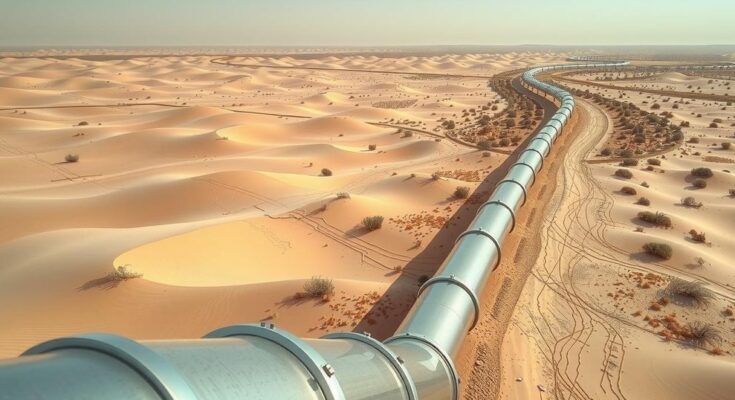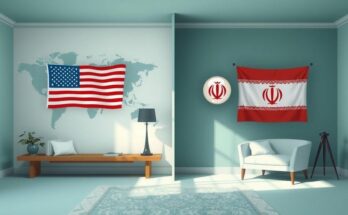Qatar has started supplying natural gas to Syria via Jordan to address electricity shortages. The agreement includes generating 400 megawatts of electricity and aims to gradually increase production. This initiative is a joint effort involving Jordan and the United Nations Development Programme to meet Syria’s energy needs.
Qatar has commenced the supply of natural gas to Syria via Jordan, aiming to alleviate the country’s ongoing electricity shortages. As reported by the state news agency QNA, this initiative was officially announced on Thursday and is part of a collaborative agreement established with Jordan and the United Nations Development Programme.
Under this agreement, Qatar will contribute natural gas resources that will generate 400 megawatts of electricity daily, with plans to gradually enhance production at the Deir Ali power plant in Syria. The generated electricity is set to benefit multiple cities, including Damascus, Rif Dimashq, and Aleppo among others.
Fahad Hamad Hassan Al-Sulaiti, the head of the Qatar Fund for Development, emphasized the significance of this initiative, stating it represents a vital step in addressing the energy needs of the Syrian populace and demonstrates a collective commitment from all parties involved to enhance regional welfare.
The interim authorities in Syria have faced challenges in securing electricity for civilians after the ousting of former President Bashar al-Assad in December. The nation’s infrastructure has suffered extensive damage due to over 13 years of civil conflict, leading to a dire need for restored power supplies, which were previously reliant on Iranian oil.
In conclusion, Qatar’s natural gas supply to Syria through Jordan is a significant development aimed at resolving the energy crisis in the country. The initiative will enhance electricity production and distribution across several major cities. It underscores the collaborative efforts between Qatar, Jordan, and international organizations to support Syria in rebuilding its infrastructure following years of conflict.
Original Source: www.aljazeera.com




